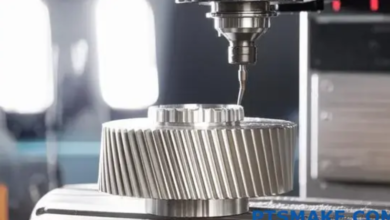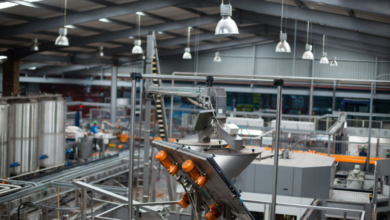Ensuring Machinery Reliability with Advanced Filtration Systems

The Importance of Maintaining Oil Quality in Industry
Industrial machinery relies heavily on oil for lubrication, cooling, and hydraulic functions. Over time, oil can accumulate impurities such as dust, water, and metallic particles, which reduce the efficiency of equipment and increase maintenance costs. Contaminated oil not only shortens the lifespan of machinery but also disrupts production schedules, leading to operational inefficiencies.
Modern industries increasingly focus on maintaining oil quality to ensure smooth operations. Using high-quality filtration systems and partnering with a trusted oil purifier manufacturer is essential for achieving optimal performance and reducing long-term costs.
How Oil Purification Systems Enhance Performance
Oil purification systems are designed to remove impurities from industrial oils, ensuring machinery operates reliably and efficiently. Key benefits of these systems include:
- Extended machinery life: Cleaner oil reduces wear on moving parts and prevents mechanical breakdowns.
- Improved operational consistency: Purified oil minimizes unexpected failures, ensuring uninterrupted production.
- Cost reduction: Less frequent oil replacement and reduced maintenance needs translate into significant financial savings.
- Environmental impact: Reusing oil lowers industrial waste and supports sustainable practices.
These advantages make oil purification systems an essential investment for modern industries seeking to optimize operations and extend equipment life.
Features of Modern Oil Purification Technology
Advances in filtration technology have made modern oil purification systems highly efficient and versatile. Key features include:
- Multi-stage filtration: Systems combine mechanical, chemical, and centrifugal methods to remove solid, liquid, and gaseous contaminants.
- Automated monitoring: Sensors track oil quality in real-time, allowing operators to take preventive action before problems arise.
- Energy efficiency: Designed to deliver high purification performance with minimal energy consumption.
- Adaptability: Systems can be customized for small workshops or large industrial plants, providing flexibility for various operational needs.
These features ensure that oil purifier manufacturer protect machinery, maintain oil quality, and improve overall operational efficiency.
Types of Oil Purification Systems
Different industries require different oil purification methods depending on operational requirements:
- Centrifugal systems: Use centrifugal force to separate water and solid particles from oil, suitable for large industrial applications.
- Vacuum dehydration units: Remove moisture and dissolved gases, particularly useful for turbine and hydraulic oils.
- Filter-based systems: Utilize mechanical filters to trap contaminants, widely applicable across various machinery types.
Selecting the right system involves evaluating oil volume, contaminant type, and specific operational demands.
See also: How Smart Home Technology Is Redefining Interior Design
Benefits Beyond Machinery Protection
Oil purification offers multiple benefits beyond extending machinery life:
- Operational efficiency: Clean oil improves energy efficiency and reduces wear and tear on equipment.
- Sustainability: Reusing oil reduces environmental waste and promotes eco-friendly practices.
- Safety: Purified oil minimizes the risk of overheating, corrosion, and equipment failure, ensuring safer operations.
- Consistent production quality: Maintaining high-quality oil ensures machinery functions smoothly, improving product consistency.
Industries that adopt high-quality oil purification systems not only protect machinery but also enhance operational productivity and environmental responsibility.
Maintenance and Operational Guidelines
To maximize the efficiency of oil purification systems, regular maintenance and proper operation are critical:
- Routine inspections: Regularly check filters, sensors, and oil condition to detect early signs of contamination.
- Timely replacement of consumables: Ensures that filtration components continue to function effectively.
- Operator training: Educating staff on system operation and recognizing oil contamination helps maintain optimal performance.
- Proper installation: Correct integration with machinery ensures smooth operation and minimizes downtime.
Following these guidelines allows industries to maintain oil quality consistently and extend the service life of both the purification system and machinery.
Economic and Industrial Implications
Investing in oil purification systems has significant economic and operational advantages. Cleaner oil extends the life of machinery, reduces the frequency of maintenance, and prevents unplanned production interruptions, resulting in substantial cost savings.
From an industrial perspective, oil purification supports sustainable practices. By reducing waste oil disposal and improving energy efficiency, companies can meet environmental standards while maintaining high levels of operational performance.
Emerging Trends in Oil Purification Technology
Oil purification technology continues to evolve, incorporating innovations that improve efficiency, sustainability, and automation:
- IoT-enabled purification systems: Remote monitoring and predictive maintenance allow better control and system optimization.
- Eco-friendly filtration materials: New filters reduce environmental impact while maintaining high purification performance.
- Compact and modular designs: Systems are easier to install, scale, and adapt to diverse industrial applications.
- Advanced multi-stage purification techniques: Combining centrifugal, vacuum, and mechanical filtration achieves near-zero contamination levels.
These trends indicate that oil purification systems are becoming more intelligent, efficient, and environmentally conscious, providing long-term value to industrial operations.
Selecting the Right Oil Purifier Manufacturer
Choosing the right oil purifier manufacturer is crucial for ensuring quality and reliability:
- Experience and reputation: A manufacturer with a proven track record ensures reliable equipment and service.
- Customization capabilities: The ability to provide systems tailored to specific industrial needs enhances performance.
- After-sales support: Comprehensive technical support and maintenance services ensure longevity and consistent operation.
- Compliance with standards: High-quality manufacturers adhere to safety, performance, and environmental regulations.
Partnering with a trusted oil purifier manufacturer ensures industries receive reliable solutions that deliver consistent results and long-term operational efficiency.
Conclusion
Oil purification is a vital component of modern industrial operations. Advanced systems protect machinery, maintain oil quality, and support operational efficiency. By choosing reliable oil purification systems and partnering with an experienced oil purifier manufacturer, industries can reduce maintenance costs, increase machinery lifespan, and adopt sustainable practices.
The continued evolution of purification technology, including automated monitoring and eco-friendly filtration, makes oil purification systems a strategic investment for industries seeking long-term performance, productivity, and environmental responsibility.




